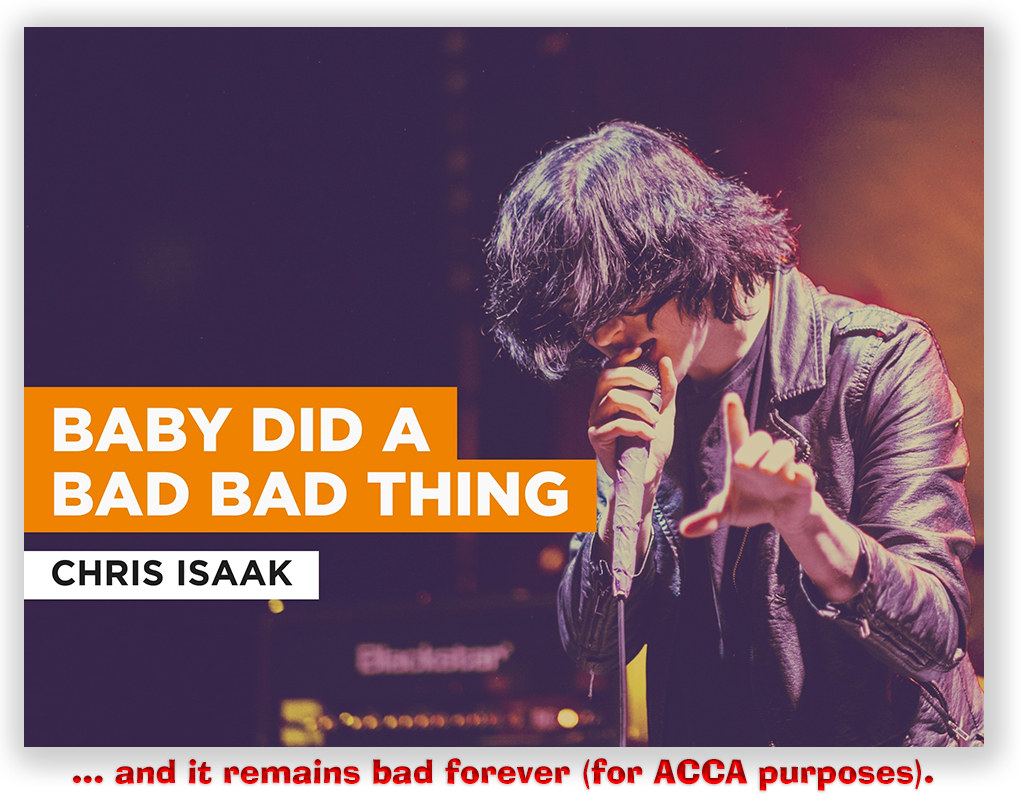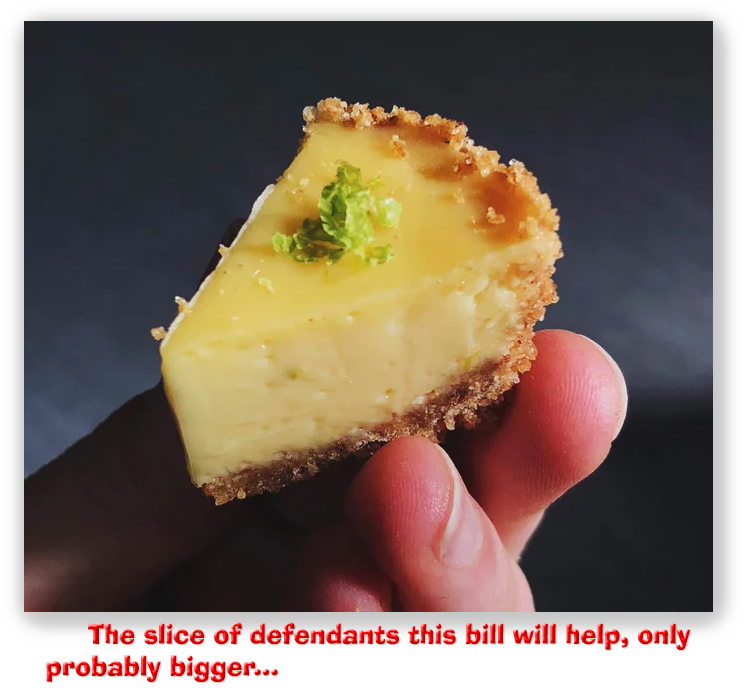We post news and comment on federal criminal justice issues, focused primarily on trial and post-conviction matters, legislative initiatives, and sentencing issues.

GOVERNMENT WANTS DEFINITIVE 2ND AMENDMENT FELON-IN-POSSESSION RULING NOW
 The pundits sprouted like mushrooms after a rain shower this past week, making all manner of interpretations and predictions on the future of the 2nd Amendment in the wake of the Supreme Court’s United States v. Rahimi decision.
The pundits sprouted like mushrooms after a rain shower this past week, making all manner of interpretations and predictions on the future of the 2nd Amendment in the wake of the Supreme Court’s United States v. Rahimi decision.
“The Court has endorsed taking guns from convicted felons, a category that now includes Donald Trump,” wrongly declared the New Yorker.
“One of the first things that’s going to happen is that the Supreme Court is going to take up a bunch of lower-court decisions on the 2nd Amendment, vacate them, send them back down for reconsideration in light of Rahimi. So we’re about to get a spate of second bites at the apple from the lower courts trying to apply this,” predicted Slate.
“The majority repeated Heller’s statement that “prohibitions… on the possession of firearms by ‘felons and the mentally ill’ are ‘presumptively lawful’… This suggests that the Court remains generally open to those restrictions… I expect that the Court will send Range back to the 3rd Circuit for further consideration in light of Rahimi; we’ll see what the 3rd Circuit judges say on remand,” UCLA law prof Eugene Volokh wrote in Reason.
Ohio State University law professor Doug Berman asked whether, in Rahimi’s wake, Donald Trump (a convicted felon subject to 18 USC 922(g)(1)) or Hunter Biden (a drug abuser when he bought his gun subject to 18 USC 922(g)(3)) can constitutionally be barred from firearm possession:
I do not believe Donald Trump or Hunter Biden “poses a clear threat of physical violence to another,” and § 922(g)(1) notably serves to permanently disarm anyone with a felony conviction. Further, the federal government has, since Bruen, generally argued for the constitutionality of 922(g)(1) based on the notion that only “responsible” individuals have 2nd Amendment rights. The Rahimi court directly and expressly rejected that notion. But still, as we saw before in 2nd Amendment cases like Heller and McDonald, the Court in Rahimi seems to still embrace dicta that can be read to suggest that the very broad criminal prohibition set forth in 18 USC § 922(g)(1) is still constitutional.
William & Mary law professor Kami Chavis wrote, “Although the court upheld Section 922(g)(8)… barriers to other attempts to implement modern gun regulations likely remain.”
 After the pundits all pontificated, the Solicitor General checked in last Monday, filing a surprising supplemental brief in Garland v. Range that asked the Court to quickly grant cert in a “range” of felon-in-possession cases to clarify who it can disarm under § 922(g)(1) consistent with the 2nd Amendment.
After the pundits all pontificated, the Solicitor General checked in last Monday, filing a surprising supplemental brief in Garland v. Range that asked the Court to quickly grant cert in a “range” of felon-in-possession cases to clarify who it can disarm under § 922(g)(1) consistent with the 2nd Amendment.
Specifically, SG Elizabeth Prelogar has asked SCOTUS to review some or all five separate pending cases dealing with the federal gun ban for felonies of varying severity. She argued that “we believe [the Court] should grant plenary review to resolve Section 922(g)(1)‘s constitutionality… Although this Court’s decision in Rahimi corrects some of the methodological errors made by courts that have held Section 922(g)(1) invalid, it is unlikely to fully resolve the existing conflict.”
The government argues that the conflict is important. Out of about 64,000 criminal cases reported to the Sentencing Commission in Fiscal Year 2022, more than 7,600 were § 922(g)(1) cases, 12% of all federal criminal cases.
It seems that just about everyone expected a spate of GVR orders on pending petitions for cert. (A GVR is a single-sentence order in which the Supreme Court grants certiorari, vacates the appellate court decision, and remands the case for further consideration in light of a new SCOTUS decision, in this case, Rahimi).
The government’s supplemental brief argues that “a GVR order is inappropriate if the delay and further cost entailed in a remand are not justified by the potential benefits of further consideration by the lower court. In our view, that is the case here. Section 922(g)(1)’s constitutionality has divided courts of appeals and district courts. Although this Court’s decision in Rahimi corrects some of the methodological errors made by courts that have held Section 922(g)(1) invalid, it is unlikely to fully resolve the existing conflict. And given the frequency with which the government brings criminal cases under Section 922(g)(1), the substantial costs of prolonging uncertainty about the statute’s constitutionality outweigh any benefits of further percolation. Under these circumstances, the better course would be to grant plenary review now.”
 The government recommends that SCOTUS grant cert on multiple cases to be heard in one ultimate felon-in-possession case, including Doss v. United States (whether applying felon-in-possession is constitutional where the petitioner has “a lengthy criminal record” that “includes over 20 convictions, many of them violent”) and Jackson v. United States (petitioner has “previous felony convictions for non-violent drug crimes”). The government also asked that the Court add to the mix either Range v. Attorney General (3rd Circuit held 922(g)(1) was unconstitutional as applied to a man convicted of food-stamp fraud from 25 years before) or Vincent v. United States (10th Circuit held 922(g)(1) was constitutional as applied to addicted woman convicted of bank fraud 15 years before but now drug-free and running large charity).
The government recommends that SCOTUS grant cert on multiple cases to be heard in one ultimate felon-in-possession case, including Doss v. United States (whether applying felon-in-possession is constitutional where the petitioner has “a lengthy criminal record” that “includes over 20 convictions, many of them violent”) and Jackson v. United States (petitioner has “previous felony convictions for non-violent drug crimes”). The government also asked that the Court add to the mix either Range v. Attorney General (3rd Circuit held 922(g)(1) was unconstitutional as applied to a man convicted of food-stamp fraud from 25 years before) or Vincent v. United States (10th Circuit held 922(g)(1) was constitutional as applied to addicted woman convicted of bank fraud 15 years before but now drug-free and running large charity).
As for Range and Vincent, the Government argues that “[g]ranting review in one of those cases would enable this Court to consider Section 922(g)(1)’s application to non-drug, non-violent crimes.”
A statement in the supplemental brief suggests the Government may have concluded that Rahimi means that it cannot win arguing that 922(g)(1) is constitutional in all circumstances. SG Preloger says that granting “review in cases involving different types of predicate felonies” would “enable the Court to consider Section 922(g)(1)’s constitutionality across a range of circumstances that are fully representative of the statute’s applications.”
 If the government were convinced that it can defend 922(g)(1) in all circumstances, it would be happy with certiorari in either Range or Vincent, because winning on either of those cases would establish that 922(g)(1) is constitutional and thus immune to an “as applied” challenge. The fact that the government suggests that the Court hear swath of cases with defendants ranging from saint to sinner implies that the SG has conceded that the “as applied” constitutional line is going to fall somewhere in between Mr. Doss and Ms. Vincent.
If the government were convinced that it can defend 922(g)(1) in all circumstances, it would be happy with certiorari in either Range or Vincent, because winning on either of those cases would establish that 922(g)(1) is constitutional and thus immune to an “as applied” challenge. The fact that the government suggests that the Court hear swath of cases with defendants ranging from saint to sinner implies that the SG has conceded that the “as applied” constitutional line is going to fall somewhere in between Mr. Doss and Ms. Vincent.
Such a conclusion is almost foreordained by the Rahimi court’s warning that its Rahimi ruling is narrow:
Our resolution of Mr. Rahimi’s facial challenge to § 922(g)(8) necessarily leaves open the question whether the statute might be unconstitutional as applied in particular circumstances… We do not decide today whether the government may disarm a person without a judicial finding that he poses a “credible threat” to another’s physical safety… We do not resolve whether the government may disarm an individual permanently… We do not determine whether § 922(g)(8) may be constitutionally enforced against a person who uses a firearm in self-defense… Nor do we purport to approve in advance other laws denying firearms on a categorical basis to any group of persons a legislature happens to deem, as the government puts it, “not ‘responsible.’”
The Court will accept the SG’s invitation, if at all, early next week (although the Solicitor General has substantial influence with the Court). If the Supremes do take the cases, it will move up by at least a year the time we’ll have a definitive ruling on the constitutional limits of the felon-in-possession statute.
United States v. Rahimi, Case No 22-915, 2024 U.S. LEXIS 2714 (June 21, 2024)
United States v. Doss, Case No. 22-3662, 2023 U.S. App. LEXIS 31748 (8th Cir. Dec. 1, 2023)
United States v. Jackson, 69 F.4th 495 (8th Cir. 2023)
Vincent v. Garland, 80 F.4th 1197 (10th Cir. 2023)
Range v. Attorney General, 69 F.4th 96 (3d Cir. 2023)
Supplemental Brief, Garland v. Range, Case No. 23-374
New York State Rifle & Pistol Association v. Bruen, 597 U.S. 1 (2022)
New Yorker, The Supreme Court Steps Back From the Brink on Guns (June 22, 2024)
Slate, John Roberts Tried to Clean Up Clarence Thomas’ Mess. He May Have Invited More Chaos (June 24, 2024)
Reason, Some Takeaways from Today’s Rahimi 2nd Amendment Opinions (June 21, 2024)
Sentencing Law and Policy, After Rahimi, can Donald Trump legally possess a gun? How about Hunter Biden? (June 24, 2024)
Bloomberg Law, Narrow Gun Opinion Says Law Not in ‘Amber,’ But History Rules (June 25, 2024)
The Reload, DOJ Asks Supreme Court to Resolve Question of Gun Rights for Felons (June 25, 2024)
– Thomas L. Root










